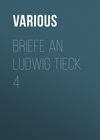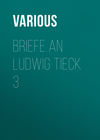Buch lesen: «Belford's Magazine, Vol II, No. 10, March 1889»
WEALTH AND ITS CONSEQUENCES
When the government established by our forefathers became a recognized fact both at home and abroad, and for three-quarters of a century thereafter, no one dreamed that the greatest danger which threatened its existence was the wealth which might accumulate within its realm; indeed, no one ever dreamed of the possibilities which lay in that direction.
It is only during the past twenty years that the accumulation of wealth has entered into the problem. Down to the period of 1861, the only disturbing element of any magnitude was slavery. It was the slavery problem which weighed so heavily upon the "godlike" Webster. It was an ever-present, ghastly, and hideous form, appealing to his patriotic soul. It is certain that it cast a shadow of melancholy over his whole life. But Mr. Webster did not live to witness the dreadful loss of life and treasure, and the awful gloom, of its going out.
There is a question now of far greater magnitude than that which was settled by the sword, and that is the question of the enormous wealth, and its increase in the hands of the few. No reference is now made to the owners of the thousands or the hundreds of thousands – to the industrious and prosperous people scattered all over the land; for moderate wealth, universally diffused, is the prime safeguard of a nation: but I refer to the millions, the tens of millions, and the hundreds of millions owned and controlled by the few.
The ignorant poor and the no less ignorant rich may ridicule or sneer at the expression of fear that harm may come to the Republic on account of great wealth; but ridicule never settled any question. Ridicule is always the weapon of the ignorant and the vicious. None but the ignorant will ridicule the subject, for the history of the world reveals the destruction of nations on account of wealth – never from poverty.
What if a man does have millions – is it any of the people's business? is the query of the ignorant. This is the question that is to be solved. This is, in fact, the supreme question. If the government is a government of the people and for the people, under the people's Constitution the people have the right to protect themselves. If the possession of millions by any person is a menace to the liberties of the people and to the permanence of their government, the people have the right to legislate upon the matter and to protect themselves. That this Republic belongs to the people, no one can doubt. That it was established, by their blood and treasure, as an asylum for the oppressed of all nations and the perpetual abode of free men, every page of American history attests. The protest of our forefathers to British tyranny, the Declaration of Independence, the war which followed, the steps taken for the adoption of a Constitution, the Bill of Rights, and the Constitution all declare, in terms not to be mistaken, the right of the people to protection against foes from within and foes from without. How this menace will be met I have no means of knowing; but that it must be met, or sooner or later the Republic will be destroyed, no intelligent man can doubt.
As matters now stand, bad as they are, it might perhaps be endurable; but wealth accumulates, and the man with ten millions to-day may have a hundred millions in ten years, and the man with a hundred millions may have a thousand. There is not a king or an emperor on a throne to-day that would be safe a single moment with a subject possessing a thousand million dollars; and can it be expected that a Republic would be safer? The wealth of the Rothschilds was for a long time the wonder of the world. They held the purse-strings of nearly all Europe; kings, emperors, and principalities were and are yet at their mercy. But the wealth of the Rothschilds, the accumulations of generations, pales into insignificance before the wealth of the Vanderbilts, the Goulds, the Astors, the Lelands, the Carnegies, and the Spreckels, when the period of acquisition is taken into account. History fails to record any accumulation of wealth so rapid and so colossal as that which has taken place in this country, and during a period of from five to twenty-five years.
The wealth of the Rothschilds has been the marvel of generations until within the past decade; but their wealth ceases to dazzle and bewilder even the youths of America in this generation. Their wealth, however, has been the accumulation of a hundred and twenty-five years, with all Europe for their field of operations. Their accumulations do not represent the robbery of the masses. They never levied a tax upon or demanded a toll upon the necessaries of life. Their operations were mainly confined to the negotiation of loans, the placing of investments for the wealthy men of Europe, and to the legitimate sphere of banking. They had a bank in the capitals of France, Austria, Italy, England, and Prussia; but neither of those nations ever gave them the authority to issue money. The toiling millions of Europe are taxed to maintain armies and support dynasties; but they were never the subjects of a moneyed aristocracy, or victims to their cupidity, in the sense that American toilers are. Emperors and kings did indeed make their burdens heavy, and oft-times intolerable, but they taxed to maintain their governments. They were the sole despots or robbers; and there is this difference between the robbers of Europe and those of America: that European despots maintained a government, while the American despots rob the people, by the aid of the government, for purely personal profit. True, the Rothschilds' power was great. They could probably make or unmake kings; but their power was never used to build up towns and cities in one section of country and tear them down in another; to build up manufacturing establishments and great commercial monopolies in one kingdom or state, and destroy them elsewhere. They never attempted to control lines of transportation, corner the price of meat, bread, coffee, sugar, light, fuel, and other necessaries of life. No such operations were ever attempted by them, and no king or emperor would have been safe a day upon his throne who would have permitted such crimes as have been and are openly perpetrated by the millionaires of our country in their operations with beef, pork, coffee, oil, coal, sugar, wheat, and almost every other necessary of life. Under an absolute, or even a limited monarchy, these evils can be prevented or remedied; but as yet no means have been discovered to remedy or prevent them under our form of government.
Events of great magnitude crowd fast upon each other in our rapidly growing country. New questions of great importance and new phases of old questions have arisen and assumed huge proportions in a brief period, requiring the highest virtue, intelligence, and patriotism to deal with; and, while yet there may appear no constitutional means for protection against the illegitimate use of wealth under the operation of trusts and syndicates, without infringing upon the constitutional rights of citizens, it is absolutely certain that a way must be found to do so, or this great Republic, which promised so much for humanity, will cease to exist, and the hope of a "government of the people, for the people, and by the people" will be crushed from out the hearts of men.
N. G. Parker.
A YOUNG GIRL'S IDEAL
There are people one meets with now and then who seem so perfectly fitted to their age and condition that it is difficult and almost painful to imagine them in any other – some old ladies, for instance, so sweet-faced, cheery-hearted, and placid-minded that one rebels against the reflection that they were ever crude, impulsive girls or busy matrons; and some busy matrons there are whose supply of energy and capacity seems so admirably to equal the demands made upon it that, for them, girlhood and old age appear to be alike – states of lacking opportunity; and, in the third place, there are crude, impulsive girls who wear these attributes so blithely that one does not want to think of them developed and matured.
Of these was Kate Severn, aged eighteen – a tall, brown-skinned, brown-eyed, brown-haired creature, so richly and freshly tinted that these three shades blended, in a beautiful harmony, in a face of rounded lines and gracious curves such as belong alone to the lovely time of youth. She was an affectionate and dutiful daughter to her widowed mother, whose only child she was, and yet almost everyone who heard Kate Severn talked about at all heard her called cold, the basis of this appellation being a disinclination to the society and attentions of young gentlemen, which, in a girl of her age and appearance, seemed a positive eccentricity. She had had this trait from a child, when she would fly into sudden rages and fight and scratch the little boys who called her their sweetheart; and it had grown with her growth. Every summer, when she and her mother would come back to the old country-place, near the dull little town of Marston, where all the summers of her life had been spent, this determination to avoid the society of young men was more resolutely set forth by her looks and tones. It was not so aggressive as formerly, for she had acquired a fine dignity with her advancing girlhood, and was too proud not to avoid the danger of being called ridiculous. Therefore, her resentment of all masculine approaches was now quiet and severe, where it had once been angry and vehement; but it was as positive as ever, as the youth of Marston had reason to know. They said they didn't mind it, but they did immensely. A favorite remark among them was that, if she could stand it, they could – and stand it she did, magnificently. Who that saw her, driving her smart trap and strong bay horse along the country roads of Marston, with rein taut and whip alert, her erect and beautiful figure strikingly contrasted with her little mother's bent and fragile one, could suppose for one instant that it mattered an atom to her whether those were men or wooden images that walked the streets of Marston or drove about its suburbs, having their salutes to the tall cart returned by a swift, cool bow from its driver, who disdained to rest her handsome eyes upon them long enough to discern the half-indignant, half-admiring gazes with which they looked after her.
She was not, at heart, an unsocial creature, and in her childhood had been rather a favorite with the girls who came in contact with her, but she always was unlike them; and this dissimilarity now constituted a distinct isolation for her, since the fact that she had herself no beaux, – to use the term in vogue in Marston society, – and took no interest in hearing of those of her girl friends, left the latter much at a loss for topics, and forced upon Kate herself the conviction that she had not the power of interesting them. Dr. Brett, the country doctor who was her mother's physician and chief friend when she came to her country home, used to try to adjust matters for Kate, and made many praiseworthy efforts to promote a spirit of sociability between her and the young people of Marston, each and every one of which was a flat failure. At last he had given up in despair and let the matter drop, for Kate, in this her eighteenth summer, was more difficult, as well as taller, straighter, and handsomer, than ever. So reflected Dr. Brett as he drove homeward from his first visit to the Severns, feeling a good deal cheered by the recurrence into his humdrum life of this attractive mother and daughter, who received him into their home with a cordiality and friendliness enjoyed by a few people only. Mrs. Severn was an invalid, and unequal to seeing much company; and Kate, though the very opposite of an invalid, had contrived, as I have shown, to cut herself off from society – in Marston, at least – rather effectually. She liked Dr. Brett, and seemed always glad to see him – a departure in his favor which he was not old enough to relish altogether. Still, the gods had provided him a pleasant spot of refreshment in the midst of a rather dull professional routine, and he gladly made the most of it. Kate, who was extremely fastidious, criticized him severely to her mother, and regretted very often that a man who had some capabilities should neglect his appearance as he did – allowing his face and hands to get so sunburned, his hair to grow so long, and his clothes to look so shabby and old-fashioned.
Perhaps the reason that she was so hard upon good Dr. Brett was accounted for by the fact that this man-repudiating young lady carried about in her mind a beautiful ideal of her own, of whose existence, even in this immaterial form, no being in the world besides herself had a suspicion. His appearance, in truth, was wholly and entirely ideal, but he was founded on fact, and that fact was a certain manuscript which five years ago she had fished up from an old box in the garret. This garret had been for generations the receptacle for all the old, disused belongings of the Severns; and it had been Kate's delight, from childhood up, to explore its old chests and trunks, and invent for herself vivid stories of the old-time ladies and gentlemen to whom had belonged these queer old gowns and uniforms – these scant petticoats and meagre waists, and these knee-breeches and lace-trimmed coats. There were spinning-wheels and guitars to suggest poses for the women, and cocked hats and swords for the men. As she grew older, these childish games lost part of their charm for her, and these mere suits and trappings of the creatures of her imagination gave her such a sense of lack that she turned to some old papers in one of the boxes, in the hope that she might get some light upon the spirits and souls that had animated them. In her own fair young body there had arisen certain insistent demands which there was nothing in the life she led to supply. The tortures of the Inquisition would not have drawn this confession from her; but so indeed it was, and I must have sketched the personality of this young lady very clumsily indeed if it has not appeared that, beneath this independent, self-sufficing surface, there was a heart full of romance and sentiment, a feeling all the stronger for being denied a vent.
It was an era in Kate Severn's life – that rainy day in late summertime, when she found in the garret the old roll of manuscript from which was formulated the ideal that afterward so wholly took possession of her. It was a budget of closely written sheets, on blue paper turned white at the edges with age. The ink used must have been of exceptionally good quality, for it was still dark and distinct. The writing was clear, and done with a very fine pen – but there were evidences of haste. This, however, was not to be wondered at, for the subject was an exciting one, and Kate pictured to herself, with enthusiasm, the exquisite young gentleman (whom she promptly invested with the blue-velvet, lace-ruffled coat, and the handsome hat and sword which were among the paraphernalia of the attic) bending his ardent, impassioned gaze over the sheets on which were written such beautiful, fervent, reverential love-words. It was not in the form of a letter, though it was a direct appeal, or, rather, a sort of aspiration, from the heart of a man for the love of a woman. There was not a name in it from beginning to end, and there was a sort of impersonal tone in it that made Kate believe that it was addressed to an imagined woman instead of a known one. This thought occurred to her even in that first breathless perusal, and all the subsequent ones (which were countless, for she was subject to certain moods in which this old manuscript was her only balm) confirmed it. In consequence of this conviction, she did a most un-Kate-like thing. It required only a slight effort of that powerful imagination of hers to put herself in the place of this loved and importuned lady; and she actually went so far as to compose and indite answer after answer to this fond appeal – impassioned outpourings of a heart which was full and had to be emptied. These she would lock away in her desk, along with the precious blue manuscript – and read and amplify from time to time.
She had never told anyone about the finding of this manuscript, though she had questioned her mother frequently and closely about the various contents of the attic boxes, only to hear repeated the statement that they were all belongings of the Severns, and had been in the house long before her occupancy. So this precious manuscript, it must appear, was written by some by-gone relative of her father, who, it pleased her to believe, had died with all these beautiful aspirations unfulfilled. That was a thought that smiled upon far more than the picture of her ideal hero comfortably settled as a commonplace husband and father, with degenerate modern descendants. So Kate, who had no lovers in reality, made the most of this impalpable essence of one. And really he suited her much better. She could endow him with all the attributes that she admired, and even alter these at will, as her state of mind changed or her tastes developed, and a real lover could never have kept pace with her so well. Then, too, she could imagine him as beautiful and elegant as she desired – and she loved beauty and elegance in a man so much that she had never seen one yet who came up to her standard. She invested him with the most gorgeous changes of apparel – the blue velvet coat in the old trunk being one of his commonest costumes. It is true that it did not occur to her that, to fit the wishes of the manuscript to the time of the knee-breeches and lace ruffles, etc., suggested the propriety of his expressing himself in old English, while that of the blue manuscript was quite modern; but an anachronism or two of this sort was a trifling matter in so broad a scheme as hers. One effect of the finding of the paper was to make Miss Kate far more than ever scrupulous in her person, and gentle and courteous in her ways, for, although she had no superstitious idea that he really saw her out of the spirit-world, still it was her pride and pleasure to be what she knew he would have her to be. So she dressed herself in very charming gowns, with a slight expression of old-timeness about them that was not unnatural, and wore her severe, scant coifs and little folded kerchief with a prim grace that was a matter of contemporaneous benefit. Her mother and Dr. Brett got the most of it, for out-of-doors her dress was necessarily conventional, and out-of-doors, also, she encountered so many antagonistic elements that she was often made to feel that her bearing and state of mind were not such as her loyal knight would have approved. That he was a person of the gentlest heart, the kindest nature, the most loving spirit, no one who read those heartfelt words of his could doubt. Very often he would interrupt his rhapsodies to his lady-love to prostrate himself before himself, at the thought of his unworthiness to ask the love of so divine and perfect a being as her whom he addressed. How great, then, was the necessity laid upon her who had appropriated these addresses to be circumspect in thought and act!
So Kate grew every day more sweet and winning, until Dr. Brett began to wonder how he could ever have thought her hard and conceited – as he confessed to himself, with abasement, that he had. She felt that her knight and lover would have wished her to be kind to this poor, lonely old doctor, who was so good to the sick and humble about him, and led such a cheerless, companionless, bachelor existence; and she used to make his cup of tea in the evenings when he would drop in to see her mother at the close of a hard day's work, and minister to his comfort in a manner that was certainly new to her. Before the finding of that manuscript, it was little enough that she had cared about his comfort; but now it seemed of real importance to her. The more his country-made clothes, and sun-burned hands, and awkward, heavy shoes grated on her, the more it came home to her how she would be pleasing some one who wore velvet coats, with rich lace ruffles that bordered tapering white hands, and with shapely feet encased in fine silk stockings and fine diamond-buckled slippers – if he could see her! Hers was quite a happy love affair, and she had no occasion to mourn her lover dead, as she had not known him living – so, as yet, he had brought only pleasure into her life.
It was at the age of sixteen that Kate had found the blue manuscript, and so her affaire was a matter of two years' date when she returned to Marston on the occasion of her eighteenth summer. The blue-coated knight had held his own with inviolate security during those two years, and Kate was as indifferent as ever to the approaches of the youth and valor of Marston. So she and her mother settled quickly down into the routine of the old dull life. The usual visitors called, but they, too, were dull, and therefore undisturbing, and life flowed monotonously on. It was only a little less quiet existence than the one she led in winter in the city, for she never went to parties, and not often to the theatre unless there happened to be some unusual musical attraction; and her friends and relatives, of whom there were quite a number, gave her up as an incorrigibly queer girl, whom no one need try and do anything for. It is true she had her music and painting lessons there, which were some variety and diversion, but she practised both here in the country; and the life, on the whole, pleased her better. Her eccentricity, as it was called, was commented on by fewer people, and she had more time for those delicious reveries over the old blue manuscript. She loved, on rainy days, when it was not too warm up there, to steal off to the garret and look at the blue coat, and the sword, and hat, etc., and feel herself a little nearer, in that way, to her knight. It seemed a very lonely time indeed, when she looked back to the years and days before the finding of the manuscript. It had introduced an element into her life almost as strong as reality. And yet there were times – and they came oftener, now that womanhood was ripening – when a great emptiness and longing got hold of her, and the blue manuscript, which had once been so sufficient, would not satisfy her. She hugged it closer to her heart than ever, though, and all it represented to her. She often told herself it suited her a great deal better than marriage, which she had always looked upon as a grinding and grovelling existence for a woman, and expressed and felt a fine superiority to. It was quite too commonplace and humdrum an affair for her, and she told herself, with emphasis and distinctness, that she was quite content with an ideal love. And yet, to mock her, came the thought of the pictured domestic life which the blue manuscript had so tenderly described – with such longings for the fireside, the home circle, the family love that she held in scorn. She got the old blue paper and read it over, and those words of winning tenderness brought the tears to her eyes. She found herself half wishing, for his sake, while a numb pain seized her heart for herself, that he had lived to realize these sweet dreams of home and domestic love. If that was so, her ideal was gone, and how could she do without it, seeing she had nothing else? The tears became too thick, the pain in her throat was unsupportable, she felt the great sobs rising, and, springing up, she rushed down the stairs, flew to her room, bathed her face and adjusted her toilet, and then went down to make tea for her mother and Dr. Brett, after which she played away the spirit of sadness and unrest with all the gay and brilliant music she knew. By bed-time she was her own calm self, and the next day she regarded her strange mood with wonder, but she could not forget that it had been, and she was horribly afraid of its recurrence.
One morning she was driving herself alone in her pretty cart along a shady road that ran outside the town, when she recognized Dr. Brett's buggy and horse fastened to a tree near a small shady house. This was nothing to surprise her, for he was always working away on poor and helpless people who couldn't pay him, and she would have passed on without giving the matter a second thought, but that, just as she got to the dilapidated little gate, a woman rushed out of the house, with a girl of about fourteen after her, both of them screaming and throwing their hands about in a way that caused Kate's horse to take fright and gave her all she could do to control him for the next few minutes. He ran for a little way straight down the road, but she soon got him in hand and turned back to inquire into the cause of the trouble. The two females were still whooping and gesticulating in the yard, and the scene had been furthermore enlivened by the addition of three or four dirty and half-clothed children, who were also crying. Just as Kate came up, Dr. Brett appeared in the doorway, with his coat off and a very angry expression on his face. He caught hold of the woman and gave her an energetic shake, telling her to hold her tongue and control her children; and just at this point he looked up and caught sight of Kate, gazing down upon the scene from the top of her pretty cart, whose horse was now as quiet as a lamb.
"What is the matter?" asked Kate, while the whole party suspended their screams a moment to gaze at her.
"I wish to goodness you could help me," said Dr. Brett, half desperately. "I was about to perform a very simple operation on this woman's child and had everything in readiness, supposing I could trust her to assist me, when she began to bawl like an idiot, and demoralized this child who was helping me, too, and simply upset the whole thing. I came out to see if there was anyone in sight who could give me some assistance; but of course – "
"I'll help you," said Kate at once, beginning to get down from the cart. "I suppose if these people could do it I could – at least I won't lose my head."
"Oh, if you only would help!" said Dr. Brett. "I can't stop to tie your horse even. I must see about the child. Here, somebody come tie this horse, and keep out of the way, every one of you! If I hear any more howling out here, I'll box the ears of the whole party!" And with these words he disappeared into the house.
A small boy came up and took the horse's rein, and the woman promised eagerly that they would take care of everything. She was still half sobbing, and began to make excuses for herself, saying she couldn't a stayed to see it done, not if she'd die for it.
Kate did not stop to listen to her, but ran up the rickety steps, drawing off her long gloves as she did so, and entered the wretched little room. She had only time to take in its expression of squalor and destitution, when she paused abruptly, affrighted, in spite of herself, at the sight before her. On a table in the middle of the room was stretched a little child, dressed in a clean white frock, and with a fair little face, above which gleamed a mass of rich auburn curls. She glanced at the pretty face in its statuesque repose, and then saw that the little legs, bare from the knees, were horribly deformed, the feet being curled inward in a frightfully distorted manner.
"Is it dead?" said Kate, in a hushed whisper.
"Dead? My dear young lady, you don't suppose I've asked you to assist at a post-mortem," said the doctor cheerily, as he chose an instrument out of his case. "It's bad enough as it is. I don't know what I'll say of myself when this thing's over. But tell me! do you think you can stand it? There'll be only a few drops of blood. But I can put it off, if you say so. Tell the truth!"
"I don't want you to put it off," said Kate. "I am perfectly ready to help you. Tell me what to do."
She smelt the strong fumes of chloroform now, and realized that the child was under its influence and would feel no pain, and the knowledge strengthened her. She watched the doctor as he bent over and lifted one little hand, letting it drop back heavily, and then raised up one eyelid, for a second, and examined the pupil.
"All right," he said. "Now, are you frightened or nervous?"
"Not in the least," she answered, calmly, feeling a wonderful strength come into her as she met his steady, confident, reassuring gaze. It was strange, but it was the first time she had noticed how fine his eyes were.
"That's right," he said; "I knew you were not a coward. Now you must watch the child's face carefully, and at the first movement or sign of returning consciousness you must douse some chloroform out of that bottle inside that towel, and hold it cone-shaped, as it is, over the baby's nose and mouth; I'll tell you how long. Don't be frightened; there's not the least danger of giving too much, and the operation is extremely simple and short."
As he spoke the baby contracted its face a little and turned its head.
"See – I'll show you," he said. And wetting the towel from the bottle he put it over the baby's face and held it there a little while, looking up at Kate, into whose face a sweet compassion had gathered, softening and beautifying it wonderfully. She was not looking at him, but down at the baby; and with a wonderful movement of tenderness she laid her fair hand on the poor deformed feet and gave them a little gentle pressure. She was utterly unconscious of herself or she couldn't have done it. Theoretically, she hated children.
The doctor now took his position at the foot of the table, and holding one of the child's feet in his hand, felt with his thumb and forefinger for a second and then made a slight incision. Kate saw one big drop of blood come out and then turned her eyes to the face of the child, as she had been instructed. The little creature was sleeping as sweetly as if in a noonday nap, and looked so unconscious and placid that it seemed all the more pitiful. She bent over and smoothed the bright curls, and then kissed the soft cheek.




















